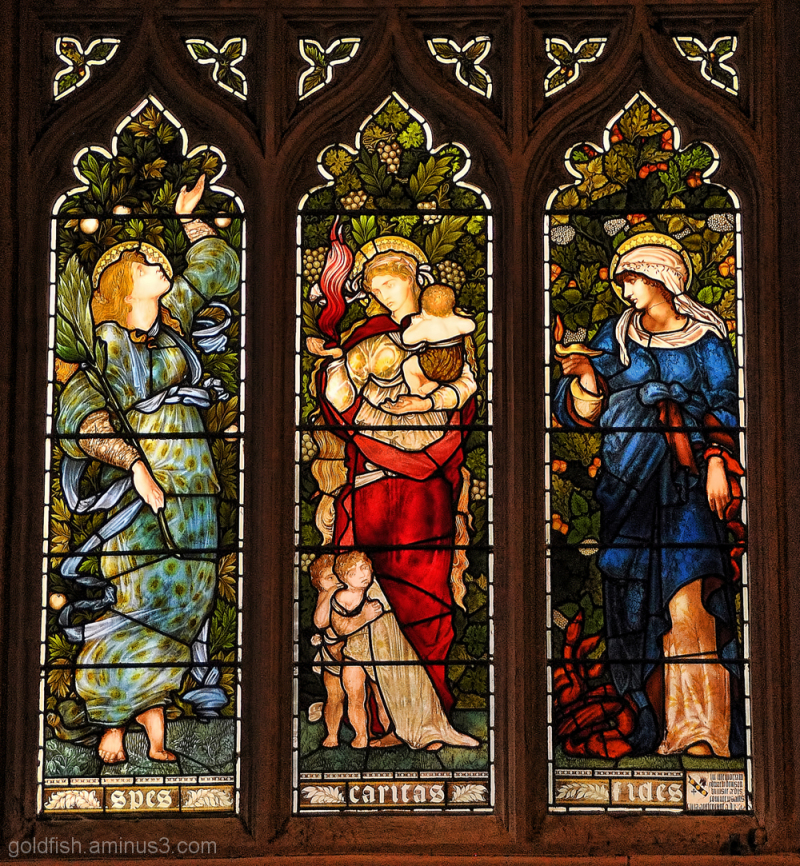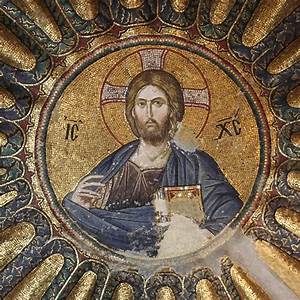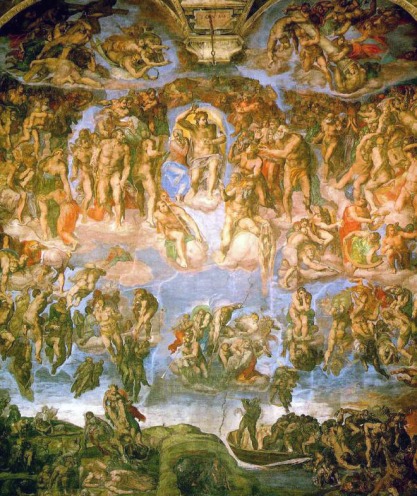
Faith, Hope, and Charity
As I enter into this second week of Lent, I am confronted by my own shortcomings in my resolve to enter into this Great Fast. It is all too easy to make excuse for relaxing this or that observance to which I have committed myself. As such, I feel it is important to remind myself of the purpose in these Lenten observances of Prayer, Fasting, and almsgiving. These are not randomly chosen practices that the Church has deigned to give us. Rather, they at the heart of our life in Christ and direct us to the habits of such life, namely Faith, Hope, and love. The whole of our Christian lives can be seen in the light of these three virtues, and while these virtues are fundamentally a gift from God, they grow through a response to that gift. Three of the best ways that we can respond is through prayer, fasting, and almsgiving.

pantocrator mosaic at the top of the southern cupula of the inner narthex of the Church of the Holy Savior in Constantinople
Faith: Faith is not simply to know about God, but knowing God in the same way that we would know our closest Friend, our Father, and our beloved Spouse. This knowing is deepened through communication, which we call prayer, by dedicating more time in prayer we renew the love we have for God. Sometimes this can feel like a chore, but honestly, this is also the case for many of our relationships. There are times when we contact somebody or spend time with somebody, not because we are feeling drawn to it, but because we know that it is good and important. When I do this I almost always feel happy about having chosen to do so afterward. The same goes for prayer, sometimes we have to force ourselves to do it, or to stay in it longer than we are inclined, but it is in those moments that God truly wants to touch our hearts.

Michelangelo – Fresco of the Last Judgement
Hope: What an amazing thing hope is, and how desperately we need it in our lives. To hope is to move toward a possible future good. Hope, as a gift from God allows us to move toward our ultimate happiness, heaven. Unfortunately, all to often this vision of heaven is obscured because we place our hopes in things of this earth. We make things the cause and source of our happiness, our hope, and not God. As such, Lent calls us to remove these attachments from our lives. Only by clearing away the junk that distracts us can we see God as our true hope and salvation. Further, even those things which we intend to return to after Lent, take on a greater significance in the light of fasting and feasting. For example, to give up dessert for Lent and return to it at Easter, shows us how dessert is a foretaste of the greater sweetness of heaven.

Sacred Heart stained glass Cordoba Cathedral
Love: To love is not a feeling but a choice. A choice to give oneself to another. To love God is to respond to God giving Himself to us by giving ourselves to Him. We do this in two ways: directly and indirectly. Through our time in prayer and our offerings to the Church, we offer him a sacrifice of praise as an offering of our lives. Further, we love God through our love of others, this is expressed particularly well by giving to those who cannot give to us in return, as Jesus himself commanded (Mt 5:46; Lk 6:32-36). As such, “almsgiving” for most of us should be more than putting our spare change into the CRS rice baskets. C.S. Lewis makes this point far better than I do:
“I do not believe one can settle how much we ought to give. I am afraid the only safe rule is to give more than we can spare. In other words, if our expenditure on comforts, luxuries, amusements, etc, is up to the standard common among those with the same income as our own, we are probably giving away too little. If our charities do not at all pinch or hamper us, I should say they are too small. There ought to be things we should like to do and cannot do because our charitable expenditure excludes them.”
This reflection of C.S. Lewis certainly challenges me, but it gets at the heart of what Love is. To love is not about our excess, but about giving of our very selves.
While there is a beautiful correspondence of the virtues of faith, hope, and love to the practices of prayer, fasting, and almsgiving respectively, each of these practices plays a role in each virtue and each virtue in the practice. Faith is of course at the heart of prayer, but it is also the reason for our fasting and almsgiving. If we did not believe, too fast would simply be a diet and almsgiving would not be charity but social work. Our Hope leads us to see that prayer is a foretaste of the things to come. In almsgiving, it shows us that though we cannot help everyone ourselves, even the poorest of the poor (and perhaps especially them) might be satiated in heaven like our brother Lazarus. To love another does not simply compel us to offer them material support, but to raise them to God in prayer. Further, God will unite our very sacrifices and fasting to the heart of our Lord on the cross and use such actions to draw those whom we love closer to Himself.
I pray that this article helps renew your commitment and zeal to your Lenten practices and perhaps challenges you to enter such practices more deeply.
In Christ,
Fr. Seidel